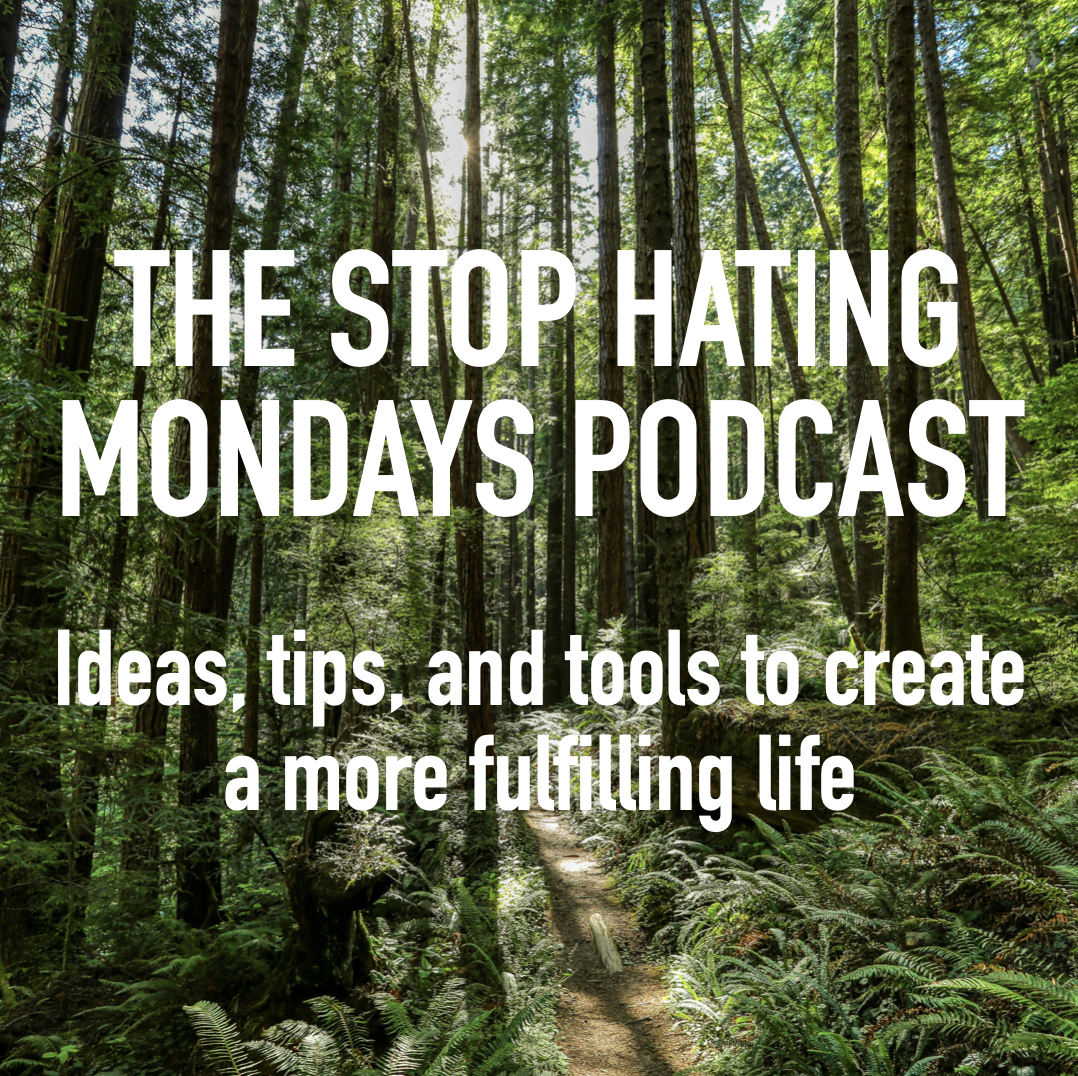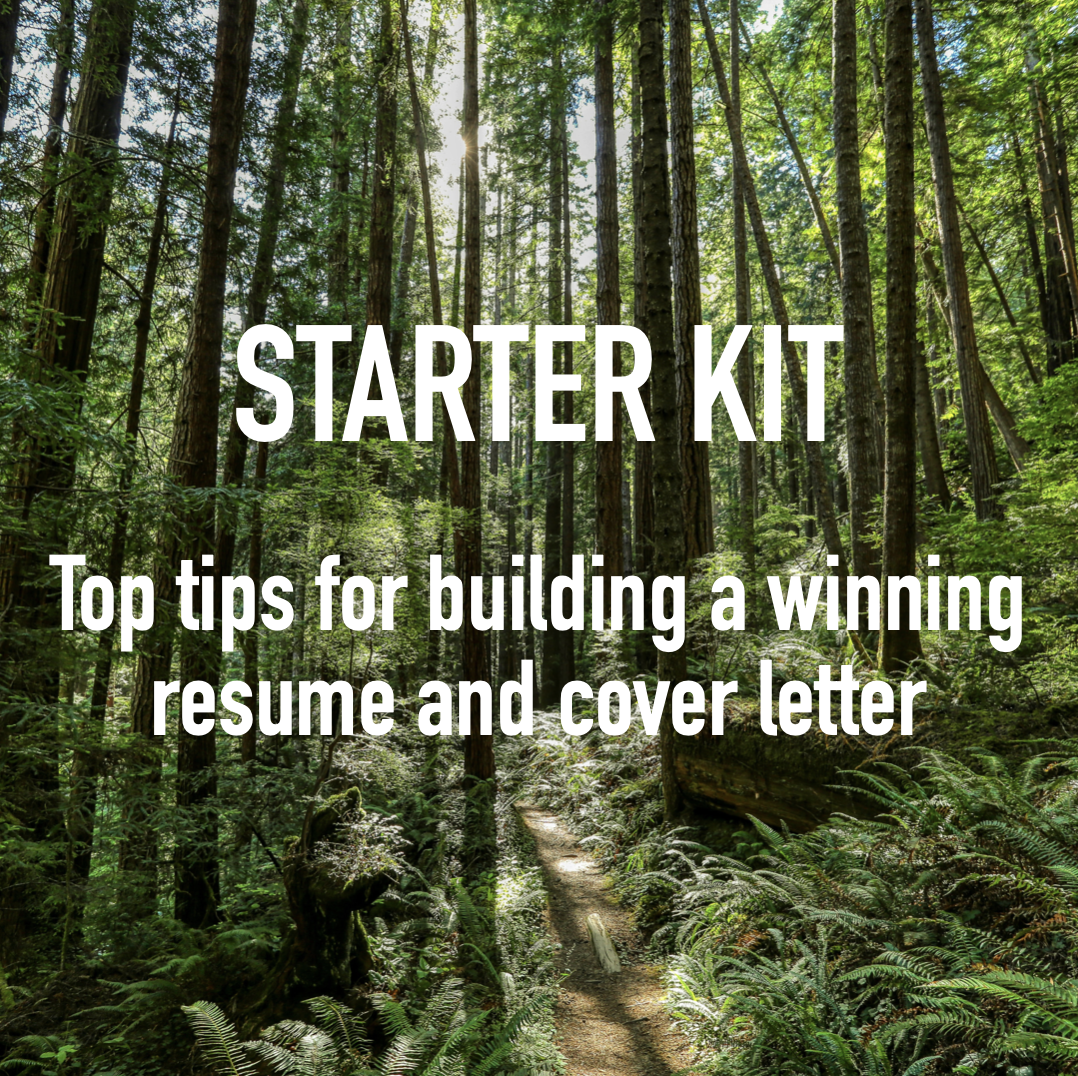How to Weigh a Career Change
Kent R.
Something that is often missing from the discussion about passion and fulfillment is the very real need for professional stability, predictable income, and the safety that those things provide. It’s not just a mental barrier to change that keeps people from choosing more fulfilling work – from making a career change – many people simply feel like they don’t have that choice to make.
So how can one move closer to their passion despite valid concerns about the instability that forward movement could lead to?
Well, we've got thoughts and ideas, and we're sharing them in this episode of the Stop Hating Mondays Podcast.
TRANSCRIPT
(Transcripts are auto-generated and may contain minor errors)
How to Weigh a Career Change
It's not just a mental barrier to change that keeps people from choosing more fulfilling work – from making a career change – many people simply feel like professional stability, predictable income, and the safety that those things provide are more important.
So, how can one move closer to their passion despite totally valid concerns about the instability that forward movement could lead to?
Well, that's what we're tackling on this episode of the Stop Hating Mondays Podcast.
Caanan
Something that is often missing from the discussion about passion and fulfillment is the very real need for professional stability, predictable income, and the safety that those things provide. It's not just a mental barrier to change that keeps people from choosing more fulfilling work, many people simply feel like they don't have that choice to make.
So, how can one move closer to their passion despite totally valid concerns about the instability that forward movement could lead to?
I'm Caanan, here with Kent, and that's what we're tackling on this episode of the Stop Hating Mondays Podcast.
Caanan
All right, so let's just get right to this question from Craig, because what he asks, I know so many of our listeners have the same question.
OK, so, he says “I've listened to your podcasts and read your blog. I feel truly stuck. I've been at my job for 12 years with a couple of promotions and I am good at it. As you said in a podcast about passion, I don't know what I am supposed to be doing, but I know it's not this.”
A lot of people can relate to that, yeah?
He goes on to say, “I feel stuck. Realistically, how do you make the big shift I envision needing to make. Predictability, income, and safety are on the line, and those things aren't nothing.
Kent
Yeah, I love this question. I love that, Craig.
I think we put it in a podcast, but it's also in our guide Stop Hating Mondays. I don't know what I'm supposed to be doing, but I know this isn't it.
We talk a lot with people who are afraid to tackle issues of passion and next steps because they have no clue. You know, it's daunting to think what's next.
So, what we often have people tap into is.
OK, you may not know where you're heading, but do you know that what you're doing is right?
So, while people often can't tell you that, or can't tell you where they're going or where they're heading, or if they found their passion, they can tell you if they haven't. And this is the case with Craig.
The reason I like his question is because, you know, we talk a lot about the binary extremes. In this realm, you're kind of on the path to fulfillment or you're not on the path to fulfillment.
We don't often talk the inbetween 'cause they don't make the best illustrative examples.
Caanan
It's not good content.
Kent
Yeah, we don't talk a lot about people like Craig who represent a majority of people we work with both as individuals and in workgroups who find a degree of pleasure and happiness and success in what they do. They certainly don't hate it, but they know it's not the IT for them. And the dilemma that Craig raises is so authentic yet common, which is… There's a lot of value in what I'm doing, I'm doing well. I don't necessarily hate it, but I'm not passionate about it. I don't feel like it's what I'm supposed to be doing, but most importantly as it relates to this dilemma, he's got – what did you say? – income, predictability, safety, those things, as he says, are not nothing.
So, yeah, his situation is far from, you know… And the points he mentions are beyond valid because the last thing we want to do is to lead people to believe that change is so constant that you constantly have to be changing.
What this boils down to is fulfillment and when we're working with workgroups and we're working with individuals. It's all about choices, not mandatory change. We work with plenty of people who decide, you know, I'm not doing what I absolutely, absolutely, absolutely should be doing in life. But I've built a great career. I like the people I work with. I'm making a contribution. I'm making good money. I'm able to then focus on this great family I have or my passion for travel.
Yeah, that is not only OK, it's beautiful.
The one thing I will say though, is this really comes down to a question of comfort versus commitment.
We talk, yeah, we talked to clients and work groups a lot about this.
It's completely OK to say, OK, I'm going to be comfortable with this where I am with my job or any other of the roles that you play in your life. But if you're not coming from a place of commitment, there's always going to be that nagging. That sort of What if I did really pursue my professional passion or whatever?
You know what? To have that nagging is OK too, but at least you're acknowledging it and you're saying you know that this is an area… This is a role in which I'm going to live from a place of comfort. Not commitment.
Caanan
So it's interesting that you bring up commitment because we also get into a lot of conversations with people asking if minimizing the importance of their job is OK.
So what would you tell somebody who said, “I just don't want a more fulfilling job. I just want to deemphasize the role my job plays in my life.”
Kent
Minimizing the importance of a job is 100% OK.
Yeah, we don't talk about that a lot here, because again, it's best to give examples that talk about the extremes and that's how people can best understand what we're trying to say. We applaud people who deprioritize work because we are in a culture of workism and I want listeners who haven't read or haven't listened to our foundational season of the podcast to go back and listen to those foundational episodes.
I believe there's three.
One of them is on workism.
It's one of our big areas of focus to get people over this idea that the primary role in their life is work.
Caanan
…this is where you find the most fulfillment – is in work and it's just an insane idea.
Kent
Yeah, because you have to remember… Get out your Apple Pencil and iPad – you are one person with many roles. Or as we often say, you have many roles, but there is only one you.
Yeah, people become so highly identified with the work part of themselves that it is all that matters.
So this is what we do a lot of unpacking with people is, “OK, you can live from a place of comfort with your work. Sort of settled in a in a positive place, but in this culture of workism, that nagging might get pretty intense at times.”
So, we're all for it. But there's definite, you know, considerations you need to keep in mind.
Caanan
Yeah, I think something you said is very interesting to me, and it's that it's OK to choose comfort over commitment. It's OK to choose to be comfortable in a role if you're making an active choice – if you're aware of what you're doing and it's a strategic decision for you.
Now, it also doesn't mean that you can't then go on and choose commitment and move forward within your role. It just won't be your primary focus, and I think that's it should be incredibly satisfying for our listeners to hear, because it it's a lot more flexibility than you're seeing in a lot of the advice out there on fulfillment.
Kent
Yeah, so what I would say in closing to this – I share this with clients a lot – people who are, you know, again, reasonably content and weighing this sort of “Do I give this all up and start over or move on to something new?” I just say, uh, work, which is, you know, the need for a change in the in your career role is one that often can't go unscratched because that nagging, yeah, that nagging will often remain so … I challenge people and say, you know, I really respect that you're deprioritizing this role, but is it an itch that can go unscratched?
Caanan
I know a big fear people have about decentering or Deprioritizing work is that they are going to be less successful – that they'll fall behind their colleagues if they stop giving all of their energy to work.
Yeah, right so, but in fact that very fear is at the heart of workism, which you just brought up. There are ways, though, for people who want to consciously deprioritize work and still grow and still find success in their roles, as I was kind of referencing before. So, let's just quickly talk about that as we wrap this up.
Kent
I'll give you two words; it's called job enrichment.
There are ways to give yourself a sense of career development and growth no matter what situation you find yourself in. It's not always about climbing or getting the next job or going higher. You can experience job enrichment in the position you currently have.



